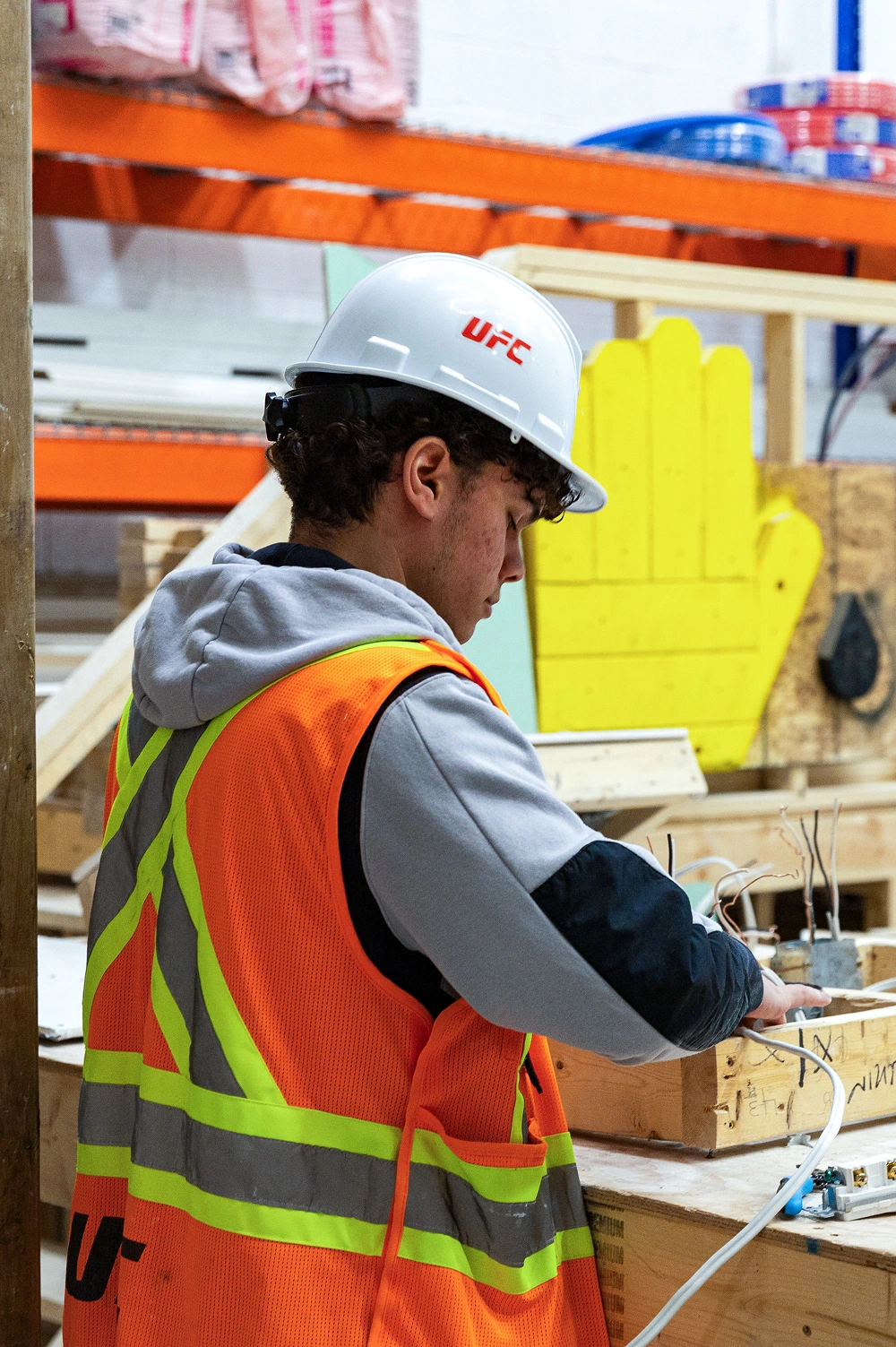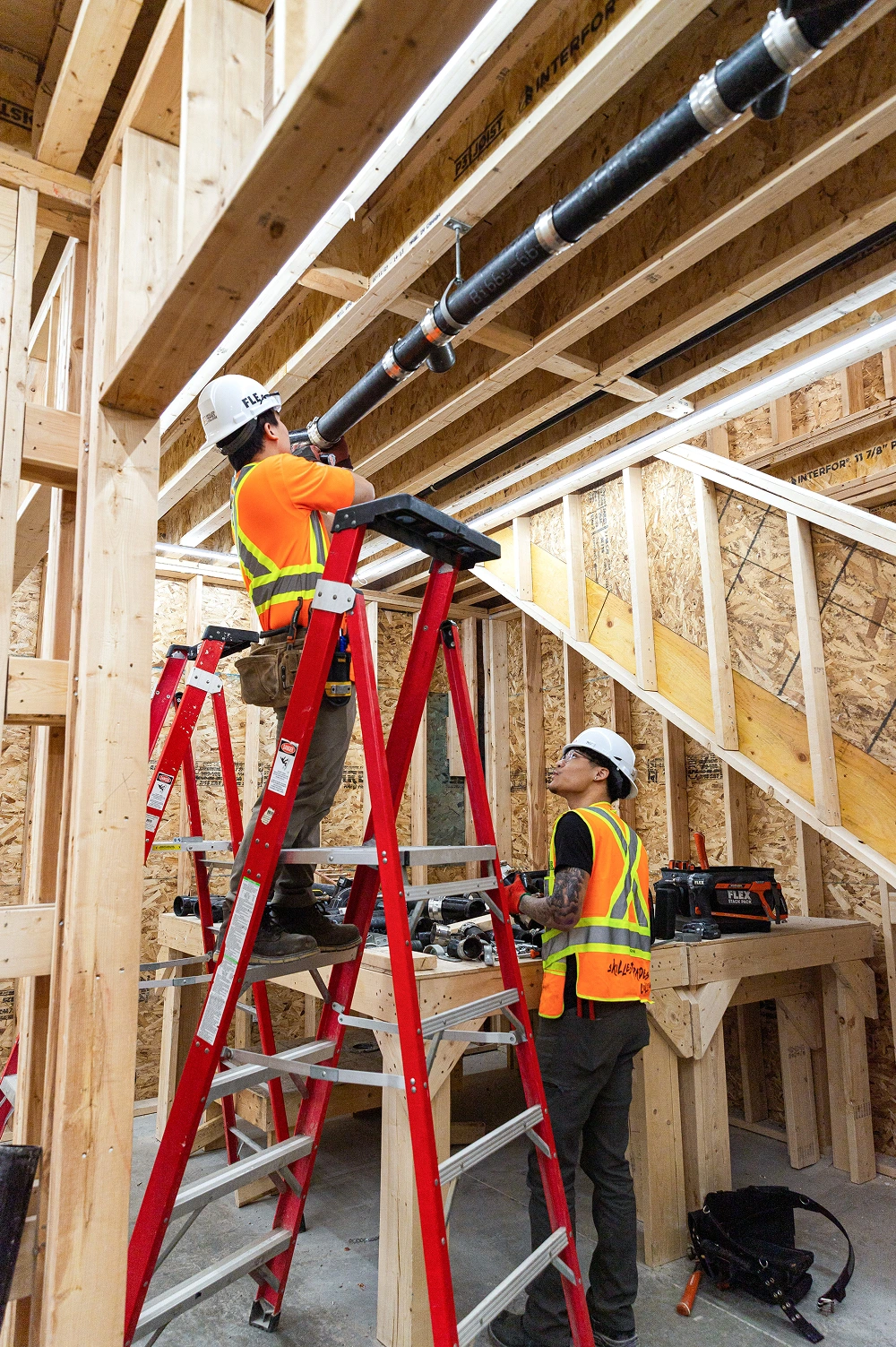12 Construction Certifications to Advance Your Career

Published On
10-08-2023

Making a living as a house flipper requires some serious home improvement skills.
Flipping a property successfully requires some basic skills before you can even dream of doing anything with it. Most people are quick to outsource work when it comes to a home improvement project, but being able to do some things yourself will save you time, money, and energy in the long run.
This blog is for the DIYers who love hardware stores and home projects: master these skills to become a successful home flipper. Let's get learning!
The fundamentals of flipping houses begin with masonry and carpentry.
Masonry is the practice of building structures with concrete blocks, marble, granite, brick, cast stone, glass block, and limestone. The sub-skills necessary include basic math, blueprint comprehension, and planning. It’s also equally important to know how to mix grout or mortar for spreading purposes.
While carpenters work with a variety of materials, they mainly work with wood.
To master carpentry, you will need to get a handle on building code navigation, basic geometry skills, and an understanding of lumber and other related materials. Get comfortable with that tape measure—it’s about to become your best friend!
If you truly want to become a master carpenter, you should consider further education or try seeking out an apprenticeship. Learn from a pro to be a pro!

No matter how well-renovated a home may be, you’re likely going to struggle to flip it unless you know how to make it look pretty.
While you don't necessarily need to be a professional interior designer, you should brush up on some basic design elements. Design is at the heart of the billion-dollar home renovation industry.
Understanding the concepts of space, line, shape, and scale will help. Your home projects will also benefit from you learning about architectural fundamentals such as symmetry, axis, datum, rhythm, transformation, repetition, and hierarchy.
Landscaping isn’t just about grass and flowerbeds.
Rather, it is also associated with irrigation systems, drought management, soil management, equipment maintenance, lawn work, and pest control. It’s usually the first thing you need to understand before you start any home remodelling project.
What does the landscape look like? What does it require from you? How much lawn space are you willing to retain? These all need to be considered!
When it comes to drywalling, texture plays a leading role.
It’s undoubtedly a skill that takes tons of practice to perfect, but with the right home renovation training, you'll be a pro in no time. Getting hands-on experience with drywall repair and using power tools can go a long way.
Floors are often overlooked, but never undervalued.
Learning how to lay flooring means becoming familiar with measurement figures, cutting, and types of foundations. To boot, this job requires long periods of being on your hands and knees. Make sure that your back is up for the challenge!
Brush up on your knowledge of contrast and colour matching.
Physically, painting requires you to be balanced, focused, and have a steady hand as you paint around light bulbs and probably a pesky ceiling fan or two. Mentally, painting is no doubt a test of endurance and spatial awareness.
It’s hard work, but a fresh coat of paint on interior walls can do wonders for a home improvement project—and make you more money when it comes time to flip!

Concreting comes after electrical and plumbing lines have been installed.
Of course, you'll need to know about using the right tools to complete the job, as well as mixing, pouring, subbases and subgrades. Your carpentry skills will be put to the test here as well, as you will need to build the flooring form.
While there are hard skills you need to be a flipper, soft skills are of equal importance. One of them is real estate appraisal or property valuation.
To that effect, it would be a good idea to research your local real estate market before you actually commence the flipping process. Information such as average sales price, average days on the market, and inventory levels play an essential part in identifying potential flips. Learning about money will help you make money!
Networking is something all successful home flippers have mastered.
When you take on a home flipping project, you will need to utilize your networking powers from the start of renovation to the sale. The people that should always be present in a flipper's network include other real estate investors, wholesalers, real estate agents, contractors, sub-contractors, and an accountant.
Why hire someone else to do the work when you can learn all the home improvement skills needed in just 12 weeks?
The Intro to Home Renovation course at the Skilled Trades College of Canada provides immersive hands-on training that simulates on-the-job work. The modules in this comprehensive program cover the basics of worksite safety, flooring installation, drywall repair, measurements, tools, electrical installations, plumbing, and more.
These skills are perfect for aspiring house flippers, those interested in working a career in the trades, or someone just looking to properly maintain their own home.
9,281+
LIVES CHANGED

12,481+
WIRES PULLED

85,382+
2X4'S CUT

9,756+
PIPES LAYED

9,281+
LIVES CHANGED

12,481+
WIRES PULLED

85,382+
2X4'S CUT

9,756+
PIPES LAYED

9,281+
LIVES CHANGED

12,481+
WIRES PULLED

85,382+
2X4'S CUT

9,756+
PIPES LAYED
